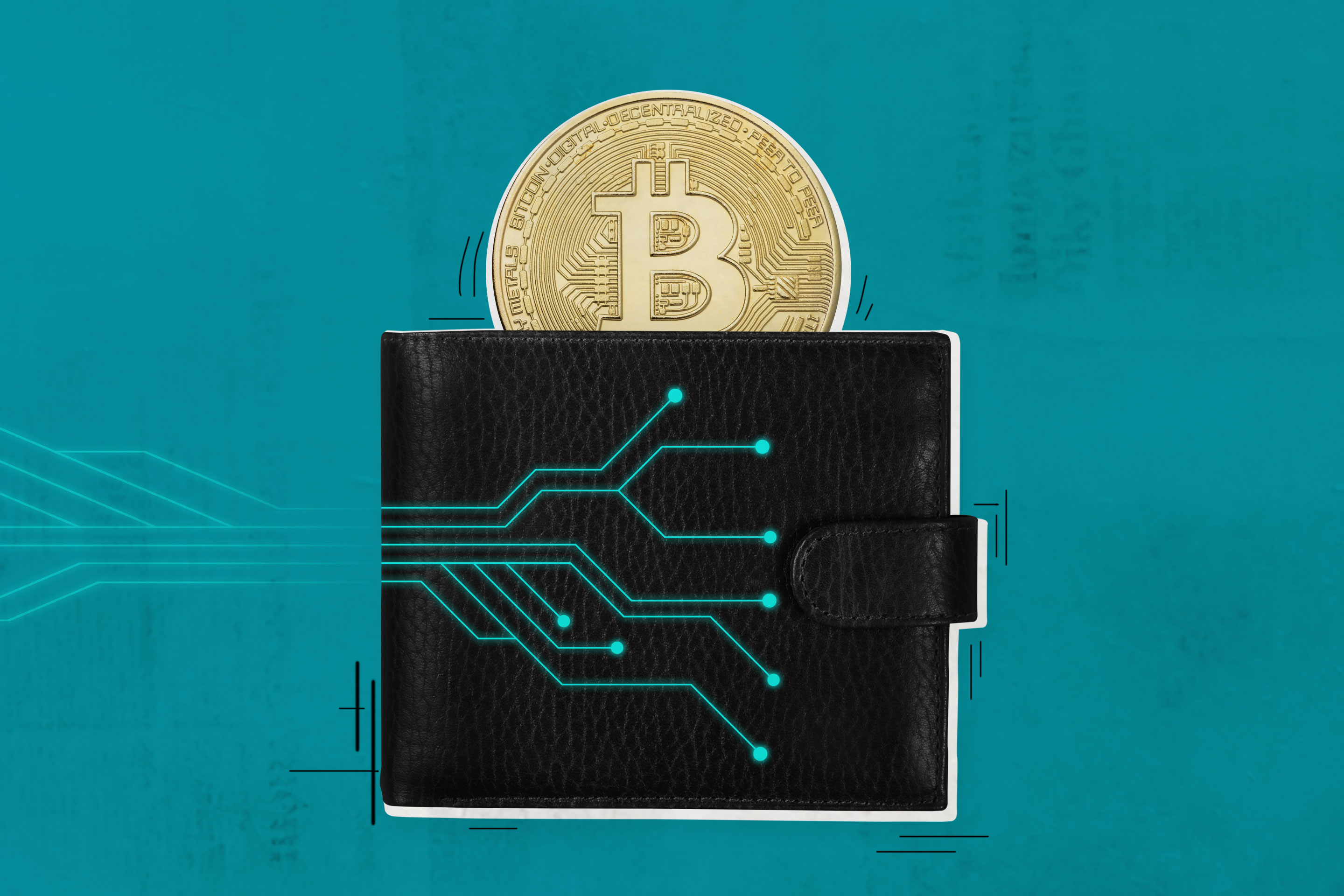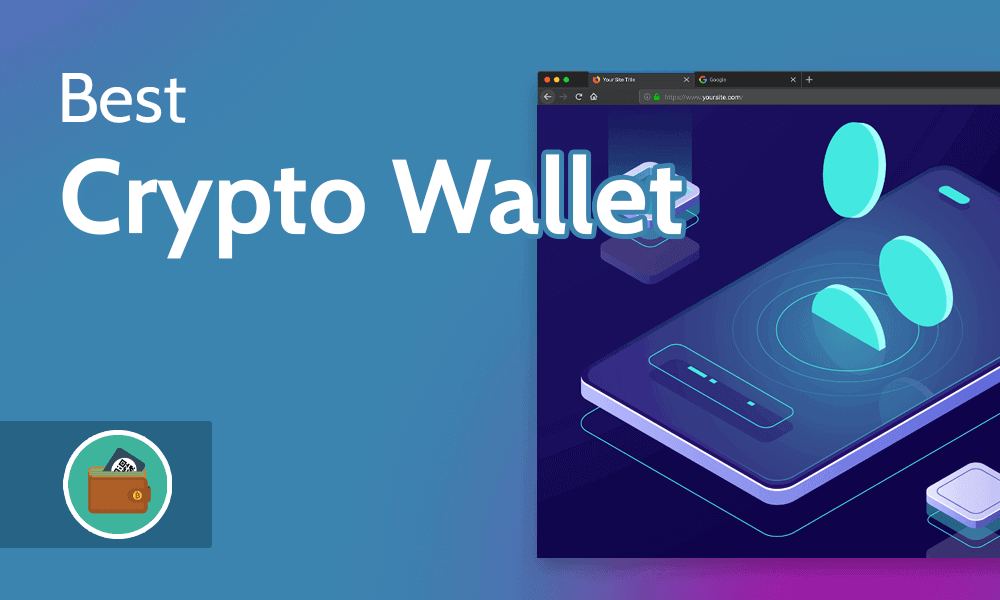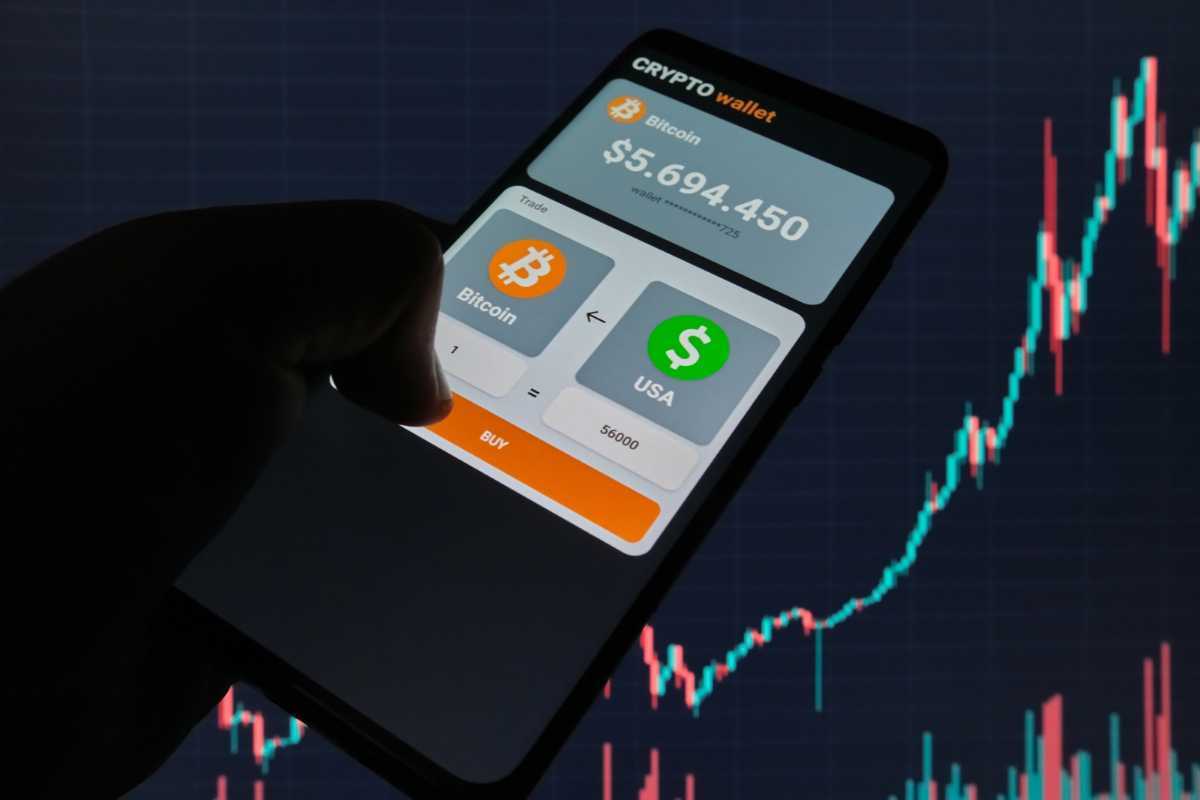If you’re into cryptocurrencies, then you know how important it is to keep your digital assets secure. With the market based on a motley of blockchains and networks, the security risks are real. Even without someone stealing your wallets, the passwords and phrases you use for your cryptos can be vulnerable.
That’s why having a reliable crypto wallet is essential. And when it comes to security, there are a number of top-notch options available. In this article, we’ll take a closer look at some of the best crypto wallets on the market in 2023.
One great option is the ABC Wallet. This Android wallet offers a full range of security features, including seed phrases and offline storage. With support for a wide variety of cryptocurrencies, you can be sure that your digital assets are safe.
Another popular choice is the XYZ Wallet. This wallet not only supports a wide range of cryptos but also works seamlessly with popular exchange platforms. So if you want to move your assets between different networks, this is the wallet for you.
And if you’re looking for an ultra-secure option, the DEF Wallet is the way to go. With its advanced encryption and out-of-pocket storage, you can rest easy knowing that your assets are in safe hands. Plus, it has a user-friendly interface and is available for download on both Android and iOS devices.
So whether you’re a seasoned crypto investor or just getting started, it’s important to choose a wallet that meets your security needs. By keeping your digital assets secure, you can have peace of mind knowing that your cryptocurrencies are safe from hackers and theft.
To discover more about the top crypto wallets in 2023, read on and find the one that works best for you. After all, when it comes to keeping your digital assets secure, there’s no such thing as being too cautious.
- FAQs
- Tips for Keeping Your Crypto Wallet Safe
- What is a Cryptocurrency Wallet
- What to Look for When Choosing the Best Crypto Wallet
- Different Types of Crypto Wallets
- 1. Software Wallets
- 2. Hardware Wallets
- 3. Paper Wallets
- 4. Web Wallets
- 5. Multi-Signature Wallets
- 6. HD Wallets
- 7. Mobile Wallets
- 8. Exchange Wallets
- Which Crypto Wallet is the Most Secure
- How Does a Crypto Wallet Work?
- Best Crypto Wallets
- Types of Non-Custodial Wallets
- Frequently Asked Questions:
- Which are the top crypto wallets for keeping my digital assets secure in 2023?
- Why is Ledger Nano S considered one of the top crypto wallets?
- What makes Trezor Model T a reliable crypto wallet?
- Is Coinbase Wallet a good choice for storing digital assets securely?
- What are the advantages of using Exodus as a crypto wallet?
- What sets Trust Wallet apart from other crypto wallets?
- Can MetaMask be considered a secure crypto wallet option?
- Video:
- Best Crypto Hardware wallet 2023
- Tangem Wallet Full Review! (Watch First!) (2023) #1 Seedless Wallet! Walkthrough & Unboxing
- Is Ledger still good for BTC & Altcoin Safety?? BEST 4 Ledger Alternatives
FAQs
Here are some frequently asked questions about crypto wallets:
-
What is a crypto wallet?
A crypto wallet is a digital wallet that allows you to securely store and manage your cryptocurrencies. It provides you with a unique address on the blockchain network where you can send and receive your digital assets.
-
What are the different types of wallets available?
There are different types of wallets available, including hardware wallets, software wallets, paper wallets, and online wallets. Each type has its own features and level of security.
-
How do I move my cryptocurrencies between wallets?
To move your cryptocurrencies between wallets, you need to initiate a transaction. This usually involves providing the receiver’s wallet address and confirming the transfer.
-
What are seed phrases or recovery phrases?
Seed phrases or recovery phrases are a set of words that act as a backup for your wallet. They are used to restore your wallet and access your funds in case you lose your wallet or it gets stolen.
-
Are crypto wallets compatible with all blockchains?
No, crypto wallets are not compatible with all blockchains. Different wallets support different blockchains, so you need to ensure that your wallet supports the specific blockchain your cryptocurrencies are based on.
-
Which wallets are the most secure?
Hardware wallets, such as Ledger and Trezor, are considered the most secure wallets as they store your private keys offline. Software wallets, like Exodus and Mycelium, also offer good security features when used correctly.
-
Can I use a wallet to store all types of cryptocurrencies?
Most wallets support a wide range of cryptocurrencies, but not all. Before choosing a wallet, make sure it supports the specific cryptocurrencies you want to store.
-
What happens if I lose my wallet or forget my passwords?
If you lose your wallet or forget your passwords, there is a high chance that you may lose access to your cryptocurrencies. That’s why it’s important to keep your wallet and passwords safe and have a backup of your recovery phrases.
-
Are online wallets safe?
Online wallets can be safe if they have strong security measures in place, such as two-factor authentication and encryption. However, they are still more vulnerable to hacking compared to hardware wallets.
Tips for Keeping Your Crypto Wallet Safe

When it comes to keeping your cryptocurrency wallet safe, there are a number of important tips to keep in mind. With the popularity of cryptocurrencies on the rise and the market offering a plethora of wallet options, it’s essential to know how to keep your digital assets secure from hackers and theft.
- Choose a reputable wallet: With so many wallets available in the market, do your research and read reviews to discover the most secure options. Look for wallets with high ratings and positive user feedback.
- Consider using a hardware wallet: Hardware wallets are a great option for those who want to keep their cryptocurrencies offline. These devices store your digital assets offline and away from potential online threats.
- Keep your wallet software up to date: Software updates often include security enhancements and bug fixes. Make sure to regularly update your wallet software to benefit from the latest security features.
- Create strong passwords: When setting up your wallet, make sure to use a strong, unique password. Avoid using common phrases or easily guessable passwords. Consider using a password manager to securely store all your passwords.
- Backup your wallet: A backup of your wallet is essential in case your device gets lost or stolen. Most wallets provide a seed phrase, which is a series of words that can be used to restore your wallet. Write down this seed phrase and keep it in a secure location.
- Be cautious with public Wi-Fi: When using your wallet on a public network, be aware that your data can be intercepted. Avoid making transactions or accessing sensitive information while connected to public Wi-Fi networks.
- Double-check addresses: Before making any cryptocurrency transactions, double-check the receiving address. Scammers have been known to replace addresses to redirect funds to their own wallets. Always verify the address before sending any funds.
- Use multi-factor authentication: Enable multi-factor authentication (MFA) whenever possible. This adds an extra layer of security by requiring a verification code in addition to your password.
- Keep your wallet private: Avoid sharing details about your wallet and cryptocurrency holdings with anyone. Be cautious of phishing attempts and never give out your wallet information or seed phrase to anyone claiming to be from customer support or a technical service provider.
- Secure your device: Keep your device secure by using strong antivirus software, keeping your operating system up to date, and avoiding suspicious downloads or applications.
Following these tips will help you ensure the security of your crypto wallet and prevent your digital assets from being stolen by hackers. Remember, when it comes to cryptocurrency, it’s better to be safe than sorry!
What is a Cryptocurrency Wallet
A cryptocurrency wallet is a digital application or device that allows you to securely store and manage your cryptocurrencies. Just like a traditional wallet, it is a place where you can keep your digital assets safe and easily access them when needed.
When it comes to cryptocurrencies, security is of utmost importance. Unlike traditional financial systems, cryptocurrencies operate on decentralized networks, making them more vulnerable to hacking and unauthorized access. This is where a cryptocurrency wallet comes in handy, as it provides a secure way to store and manage your digital assets.
There are different types of cryptocurrency wallets available, each with its own set of features and security measures. The most common types of wallets include:
- Hardware Wallets: These are physical devices that store your crypto offline. They are considered one of the most secure options as they are not connected to the internet, making it difficult for hackers to access your cryptocurrencies. Hardware wallets often require you to verify transactions using a PIN code or seed phrase.
- Software Wallets: These are applications that can be downloaded and installed on your computer or mobile device. They are convenient to use and provide a high level of security. Software wallets can be further categorized into:
- Desktop Wallets: These wallets are installed on your computer and can only be accessed from that specific device. They offer offline storage and are considered more secure than online wallets.
- Mobile Wallets: These wallets are installed on your smartphone or tablet. They are convenient for making transactions on the go but may be more vulnerable to hacking due to the nature of mobile devices.
- Online Wallets: Also known as web wallets, these wallets are accessible through web browsers. While they are convenient, they are considered less secure as they are connected to the internet and can be vulnerable to hacking.
When choosing a cryptocurrency wallet, it is important to consider factors such as security features, ease of use, supported cryptocurrencies, and customer support. Additionally, you should be cautious of fake wallets available in the market that may steal your digital assets.
It’s recommended to do thorough research, read reviews, and check the ratings of wallets before making a decision. Popular cryptocurrency wallets with good ratings include Ledger Nano S (hardware wallet), Trezor (hardware wallet), Exodus (desktop and mobile wallet), and MetaMask (browser extension wallet).
In summary, a cryptocurrency wallet is an essential tool for keeping your digital assets secure. Whether you choose a hardware wallet, software wallet, or an online wallet, make sure to take the necessary precautions to protect your cryptocurrencies from being stolen or lost.
What to Look for When Choosing the Best Crypto Wallet

When it comes to keeping your digital assets secure, choosing the right crypto wallet is of utmost importance. With a motley of wallets available on the market, it can be daunting to know which one is the best fit for your needs. Here are some factors to consider before making your decision:
- Security: The security of your cryptocurrency should be the top priority. Look for wallets that have a proven track record of keeping funds safe. Make sure the wallet uses advanced encryption and has multi-factor authentication options.
- Compatibility: Check if the wallet supports the networks and blockchains you plan to use. Some wallets only support specific cryptocurrencies or blockchains, so it’s important to choose one that aligns with your digital asset portfolio.
- Usability: Having a user-friendly interface is essential, especially if you’re new to the crypto world. Look for wallets that are easy to navigate and offer intuitive features.
- Offline Storage: Storing your cryptocurrencies offline (also known as cold storage) can add an extra layer of security. Look for wallets that allow you to store your private keys offline and provide a backup option like a seed phrase.
- Mobile and Desktop: Consider whether you want a wallet that is available on both mobile and desktop platforms. Having a wallet that works seamlessly across multiple devices can make it easier to manage your digital assets.
- Reviews and Ratings: Before choosing a wallet, take the time to read reviews and ratings from other users. Feedback from the community can provide valuable insights into the wallet’s performance, security, and reliability.
- Customer Support: In case you encounter any issues while using the wallet, it’s important to have access to reliable customer support. Look for wallets that offer responsive support through various channels.
By considering these factors, you can discover a crypto wallet that fits your needs and provides the necessary security for your digital assets. Remember, keeping your cryptocurrencies safe is essential to protect yourself from theft and ensuring peace of mind.
Different Types of Crypto Wallets
When it comes to keeping your digital assets secure in 2023, there are a number of different types of crypto wallets you can use. In this article, you’ll discover the various options available to you and find out which one is the best fit for your needs.
1. Software Wallets
Software wallets are apps or programs that you can download and install on your computer or smartphone. They are a popular choice for those who want to have full control over their cryptos and keep them safe without relying on someone else. Software wallets can be further categorized into mobile wallets (such as those available on Android and iOS) and desktop wallets (which can be installed on your computer).
2. Hardware Wallets

Hardware wallets are physical devices that store your cryptocurrencies offline. They work by generating and storing your private keys on the device itself, so even if your computer or smartphone is compromised, your cryptos are still secure. Hardware wallets usually come with a small display screen that allows you to verify and confirm transactions before signing them. Popular hardware wallets include Ledger and Trezor.
3. Paper Wallets

Paper wallets are a low-cost way to store your cryptos offline. They essentially consist of a printout of your public and private keys, usually in the form of QR codes. You can generate a paper wallet using an online service or a software program. However, it’s important to keep the physical copy secure since anyone who sees it can potentially gain access to your funds.
4. Web Wallets
Web wallets are online wallets that you can access through your web browser. They are convenient to use since you can access them from any device with an internet connection. However, they are considered less secure than other types of wallets since they are susceptible to hacking and phishing attacks. If you choose to use a web wallet, make sure to use one with high ratings and strong security features.
5. Multi-Signature Wallets

Multi-signature wallets require multiple signatures (usually from different devices or individuals) to authorize a transaction. This adds an extra layer of security since even if one of the devices or private keys is compromised, the transaction cannot be completed without the other signatures. Multi-signature wallets are often used by businesses or individuals who want to have more control over their funds.
6. HD Wallets
HD wallets, or hierarchical deterministic wallets, are wallets that use a master seed to generate a chain of addresses. This eliminates the need to constantly backup and restore your wallet every time you want to move your cryptos. HD wallets are usually compatible with multiple cryptocurrencies and are a convenient option for those who deal with a large number of addresses.
7. Mobile Wallets
Mobile wallets are a type of software wallet that you can download and install on your smartphone. They are convenient for those who want to have access to their cryptos on the go and make transactions using their phone. Mobile wallets usually support a wide range of cryptocurrencies and often provide additional features such as QR code scanning and integration with popular exchanges.
8. Exchange Wallets

Exchange wallets are provided by cryptocurrency exchanges and are used to store your cryptos when you’re not actively trading. While they are convenient for keeping your funds in one place, they are considered less secure than other types of wallets since they are more susceptible to hacking and theft. If you choose to use an exchange wallet, make sure to enable two-factor authentication and keep only a small amount of funds in it.
| Wallet Type | Security | Convenience | Compatibility |
|---|---|---|---|
| Software Wallets | Medium | High | Most cryptocurrencies |
| Hardware Wallets | High | Medium | Most cryptocurrencies |
| Paper Wallets | High | Low | Most cryptocurrencies |
| Web Wallets | Low | High | Most cryptocurrencies |
| Multi-Signature Wallets | High | Medium | Most cryptocurrencies |
| HD Wallets | Medium | High | Most cryptocurrencies |
| Mobile Wallets | Medium | High | Most cryptocurrencies |
| Exchange Wallets | Low | High | Most cryptocurrencies |
In conclusion, there are several different types of crypto wallets to choose from based on your security needs, convenience preferences, and compatibility with the cryptocurrencies you hold. Make sure to do your research and read reviews before selecting a wallet, and always remember to keep your passwords and seed phrases secure to avoid having your cryptos stolen.
Which Crypto Wallet is the Most Secure
When it comes to storing your digital assets, having a secure crypto wallet is crucial. With the increasing popularity of cryptocurrencies, it’s important to know which wallets provide the highest level of security.
Based on a number of factors such as offline storage, seed phrase support, encryption, and more, there are a few wallets that have seen great reviews in terms of security.
- Trezor: Trezor is a popular hardware wallet that supports a wide range of cryptocurrencies. It stores your private keys offline, keeping them safe from hackers. With Trezor, you can store your cryptos on multiple blockchains, including Ethereum, Polygon, and more.
- Ledger: Similar to Trezor, Ledger is a hardware wallet that provides top-notch security features. It has a secure chip and supports a wide range of cryptocurrencies. Ledger also offers a mobile app for Android and iOS, making it convenient for those who want to manage their coins on the go.
- MetaMask: MetaMask is a popular software wallet that is available as a browser extension. It offers a great balance between security and convenience. MetaMask stores your private keys locally on your device, and you have full control over them. It also supports various blockchains and allows you to interact with decentralized applications (dApps).
- Exodus: Exodus is a user-friendly software wallet that supports a wide range of cryptocurrencies. It provides a beautiful interface and allows you to easily manage your digital assets. Exodus also has a built-in exchange feature, allowing you to swap cryptocurrencies without having to move them to an exchange.
While these wallets have great security features, it’s important to note that no wallet is completely immune to attacks. Always make sure to follow best security practices, such as using strong passwords and keeping your seed phrase offline. Additionally, be cautious of phishing attempts and only download wallets from reputable sources.
When it comes to security, it’s better to be safe than sorry. Do your own research, read reviews, and choose a wallet that suits your needs and provides the level of security you’re comfortable with. Remember, when it comes to protecting your digital assets, it’s better to be in control and keep your coins safe.
How Does a Crypto Wallet Work?
A crypto wallet is a digital wallet that allows you to securely store and manage your cryptocurrencies. It works by having both a public key and a private key.
When you have cryptocurrencies, it’s important to keep them in a secure location, and that’s where a crypto wallet comes in. With a crypto wallet, you don’t have to worry about keeping your digital assets in a centralized exchange, which can be prone to hacking or other security breaches.
There are many popular crypto wallets available in the market, each with its own set of features and security ratings. They come in various forms, including online wallets, mobile wallets, desktop wallets, and even hardware wallets.
Essentially, a crypto wallet is a software application that interacts with different blockchains to send, receive, and store cryptocurrencies. It facilitates the management and access of your digital assets.
When you want to create a crypto wallet, the first step is to download the wallet app that corresponds to the type of wallet you want to use. For example, if you have an Android device, you can download a popular mobile wallet like Polygon or Trust Wallet.
Once you have the wallet app, you’ll need to create a new wallet by following the instructions provided. This usually involves generating a seed phrase, which is a set of random words that acts as a backup in case your wallet is lost or stolen.
After creating the wallet, you will be assigned a unique public key and private key. The public key is used to receive funds, while the private key is required to access and send funds from your wallet.
To ensure the security of your crypto wallet, it’s important to keep your private key secure and never share it with anyone. By keeping your private key offline and only accessing it when needed, you greatly reduce the risk of someone gaining unauthorized access to your wallet.
Crypto wallets also provide additional security features, such as the ability to create multiple addresses for different cryptocurrencies, support for two-factor authentication, and the option to set complex passwords.
When it comes to storing cryptocurrencies, there are two main ways a crypto wallet can do this: hot storage and cold storage. Hot storage refers to keeping your digital assets connected to the internet, while cold storage refers to keeping your assets offline.
Hot wallets are more convenient for frequent transactions, as they provide instant access to your funds. However, they are also more susceptible to hacking or other security risks. Cold wallets, on the other hand, provide enhanced security by keeping your private keys offline, but they require an extra step to move funds to an online wallet for trading or exchanging.
In conclusion, a crypto wallet is an essential tool for keeping your cryptocurrencies secure. Whether you choose a mobile, desktop, or hardware wallet, it’s important to understand how it works and to follow best practices to ensure the safety of your digital assets.
Best Crypto Wallets

When it comes to keeping your digital assets secure, having a reliable crypto wallet is essential. With so many options available in the market, it can be difficult to choose the best one for your needs. Here are some of the top crypto wallets to consider:
- Full control over your cryptocurrencies: With a crypto wallet, you have full control over your digital assets. You can store, receive, and send cryptocurrencies without relying on a third party.
- Security features: One of the most important factors to consider when choosing a crypto wallet is its security features. Look for wallets that offer strong encryption, two-factor authentication, and multi-signature support to ensure the safety of your funds.
- Offline storage: Offline storage, also known as cold storage, is a great way to keep your cryptocurrencies safe from hackers. Cold wallets are not connected to the internet, making it difficult for someone to steal your funds.
- Support for multiple blockchains: Different cryptocurrencies are based on different blockchains. Make sure the wallet you choose supports the blockchains of the cryptocurrencies you want to store.
- User-friendly interface: While security is important, it’s also essential to choose a wallet that is user-friendly. Look for wallets with intuitive interfaces that make it easy for you to navigate and manage your funds.
- Availability on multiple platforms: Whether you use Android or iOS, it’s important to choose a wallet that is available on your preferred platform. This ensures that you can access your funds while on the go.
Now, let’s take a closer look at some of the best crypto wallets available in 2023:
| Wallet Name | Features | Ratings |
|---|---|---|
| Motley Wallet |
|
4.5 stars |
| Polygon Wallet |
|
4.8 stars |
| Bogota Wallet |
|
4.7 stars |
Remember, it’s important to do your own research and choose a wallet that meets your specific needs and preferences. Make sure to read user reviews and weigh the pros and cons of each wallet before making a decision. With the right wallet, you can keep your digital assets secure and have peace of mind.
Types of Non-Custodial Wallets
When it comes to keeping your digital assets secure, non-custodial wallets are a great option. They’ve become increasingly popular in the cryptocurrency market, offering ways to store and manage your cryptocurrencies without having to rely on a third party. Here are a few types of non-custodial wallets you should know about:
- Mobile Wallets (Android/iOS): These wallets are available for download on your Android or iOS device. They store your private keys locally on your device, ensuring that you have full control over your funds. Mobile wallets support a number of popular blockchains, allowing you to manage multiple cryptocurrencies in one place.
- Hardware Wallets: Hardware wallets are physical devices that store your private keys offline. They are considered one of the most secure ways to store your cryptocurrencies. When you want to make a transaction, you simply connect the wallet to your computer or smartphone, enter a PIN or passphrase, and sign the transaction. Hardware wallets are resistant to cyber attacks and keep your funds safe even if your computer is compromised.
- Paper Wallets: Paper wallets are a form of cold storage for your cryptocurrencies. They involve generating a paper wallet (usually containing a QR code) that represents your public and private keys. Paper wallets are completely offline, making them highly secure. However, they require careful handling and should be kept in a safe and dry place to prevent damage.
- Mnemonic Phrase Wallets: Mnemonic phrase wallets, also known as seed phrase wallets, use a series of words (typically 12 or 24) to generate and store your private keys. This type of wallet allows you to recover your funds in case your device is lost, stolen, or damaged. Mnemonic phrases should be kept offline and stored securely, as anyone who has access to them can gain control over your funds.
Each type of non-custodial wallet offers different features and levels of security. It’s important to do your own research and read reviews or ratings before choosing a wallet. Additionally, you should always make sure to download wallets from trusted sources and be cautious of phishing attempts or scams.
In summary, non-custodial wallets provide a great way to keep your digital assets secure. Whether you prefer a mobile wallet for convenient access, a hardware wallet for top-notch security, a paper wallet for offline storage, or a mnemonic phrase wallet for easy recovery, there’s a non-custodial wallet out there for you.
Frequently Asked Questions:
Which are the top crypto wallets for keeping my digital assets secure in 2023?
Some of the top crypto wallets to keep your digital assets secure in 2023 are Ledger Nano S, Trezor Model T, Coinbase Wallet, Exodus, Trust Wallet, and MetaMask.
Why is Ledger Nano S considered one of the top crypto wallets?
Ledger Nano S is considered one of the top crypto wallets due to its strong security features such as offline storage, built-in secure chip, and the ability to store multiple cryptocurrencies. It also provides a user-friendly interface and is widely trusted by the crypto community.
What makes Trezor Model T a reliable crypto wallet?
Trezor Model T is a reliable crypto wallet because it offers advanced security features like a touch screen display for secure input of sensitive information, passphrase protection, and two-factor authentication. It supports a wide range of cryptocurrencies and has a reputation for robust security.
Is Coinbase Wallet a good choice for storing digital assets securely?
Yes, Coinbase Wallet is considered a good choice for storing digital assets securely. It offers key encryption and secure storage, multi-signature functionality, and supports a variety of cryptocurrencies. Additionally, Coinbase is a reputable and well-established cryptocurrency exchange, adding to its credibility as a secure wallet provider.
What are the advantages of using Exodus as a crypto wallet?
Exodus has several advantages as a crypto wallet, such as its intuitive user interface, support for various cryptocurrencies, built-in exchange functionality, and strong security measures like seed phrase backup and one-click recovery. It also provides real-time portfolio tracking and portfolio management features.
What sets Trust Wallet apart from other crypto wallets?
Trust Wallet stands out from other crypto wallets due to its focus on decentralized finance (DeFi) and its integration with various decentralized exchanges (DEXs). It offers a simple and secure interface, supports a wide range of cryptocurrencies, and allows users to maintain control over their private keys and funds.
Can MetaMask be considered a secure crypto wallet option?
Yes, MetaMask can be considered a secure crypto wallet option. It is a browser extension wallet that provides strong encryption for private keys, allows users to interact with decentralized applications (dApps), and supports various blockchains. However, it is important to ensure the security of the device and browser used when accessing MetaMask.
Video:
Best Crypto Hardware wallet 2023
Tangem Wallet Full Review! (Watch First!) (2023) #1 Seedless Wallet! Walkthrough & Unboxing
Is Ledger still good for BTC & Altcoin Safety?? BEST 4 Ledger Alternatives








